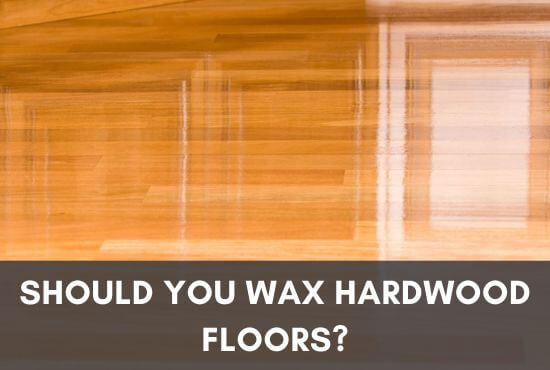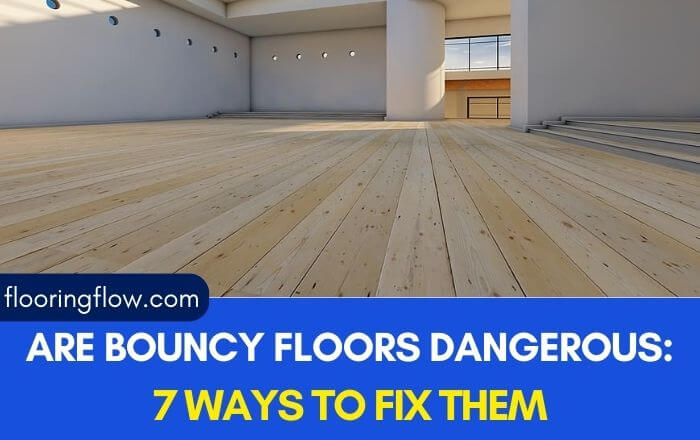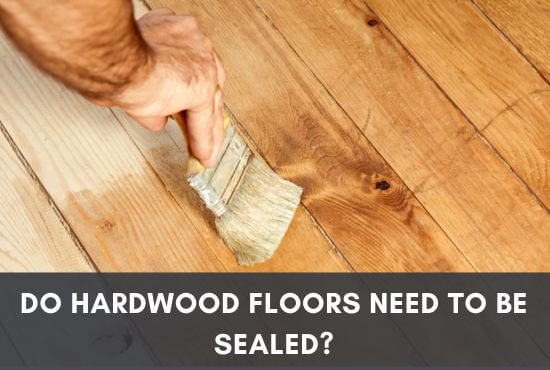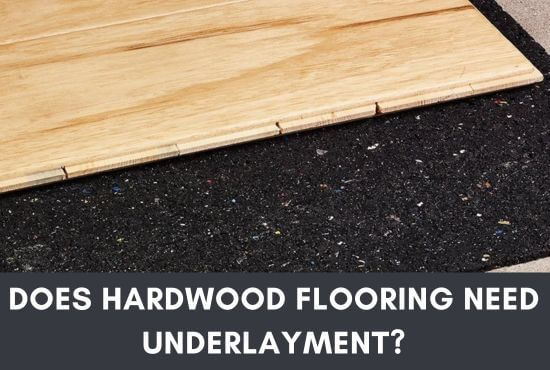Last updated on February 23rd, 2024 at 05:01 pm
Choosing the best flooring for concrete basement is not just about finding something that looks good; it’s about finding flooring that can handle moisture, wear and tear, and still fit your budget.
Vinyl tile and LVP are waterproof and durable, making them great for moisture-prone areas. Ceramic tile is also a good choice because it’s tough and easy to clean, ideal for high-traffic basement spaces.
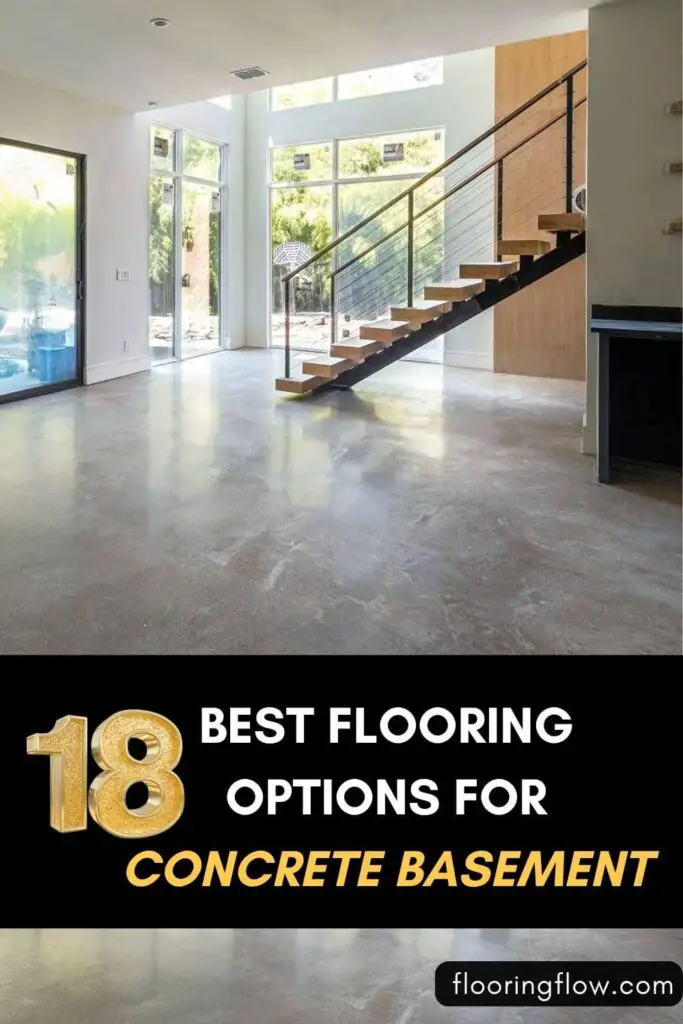
However, there are also other options that might suit your needs and preferences even better for your basement. So, keep reading until the end of this article.
If you are living in flood prone areas, you should look out for these 08 options of best flooring for basement that floods.
Table of Contents
- 1 What Type Of Flooring Is Best For Concrete Basement?
- 1.1 1. Tile: Durable and Moisture-Resistant
- 1.2 2. Carpet: Comfort and Warmth
- 1.3 3. Laminate: Affordable Elegance
- 1.4 4. Vinyl: Versatile and Waterproof
- 1.5 5. Engineered Wood: The Warmth of Wood, Minus the Worry
- 1.6 6. Vinyl Tile: Easy to Install and Budget-Friendly
- 1.7 7. Concrete: Sleek and Modern
- 1.8 8. Luxury Vinyl Plank (LVP): High-End Look, Waterproof Nature
- 1.9 9. Rubber Flooring: Durable and Comfortable
- 1.10 10. Cork: Warm and Eco-Friendly
- 1.11 11. Epoxy: Tough and Customizable
- 1.12 12. Paint: Simple and Economical
- 1.13 13. Ceramic Tile for Basement Floors: Classic and Versatile
- 1.14 14. Foam Flooring: Soft and Safe
- 1.15 15. Luxury Vinyl: Stylish and Resilient
- 1.16 16. Porcelain Tile: Elegant and Water-Resistant
- 1.17 17. Floating Floors: Flexible and Moisture-Resistant
- 1.18 18. Plank Tile: Long and Luxurious
- 2 Final Thoughts
What Type Of Flooring Is Best For Concrete Basement?
| Flooring Type | Moisture Resistance | Durability | Aesthetic Appeal | Best For |
|---|---|---|---|---|
| Vinyl Tile | High | High | Good | Budget-friendly, versatile designs |
| LVP (Luxury Vinyl Plank) | High | High | Excellent | Wood look, waterproof areas |
| Ceramic Tile | High | High | Excellent | High-traffic areas, easy maintenance |
| Carpet | Moderate | Moderate | Warm | Comfort, family rooms, play areas |
| Laminate | Moderate | High | Good | DIY, affordable elegance |
| Concrete | High | Very High | Good | Modern, industrial look |
| Rubber Flooring | High | High | Good | Gyms, play areas, shock absorption |
| Cork | Moderate | Moderate | Warm | Eco-friendly, insulation, quiet spaces |
| Epoxy | Very High | Very High | Customizable | Durable, seamless, high-traffic areas |
| Paint | Low | Low | Customizable | Quick refresh, minimal moisture |
| Foam Flooring | Moderate | Low | Good | Play areas, safe and soft surfaces |
| Engineered Wood | Moderate | High | Excellent | Wood look, better moisture resistance |
| Porcelain Tile | Very High | Very High | Excellent | Elegant look, damp areas |
| Floating Floors | Moderate | High | Good | Moisture resistance, temperature changes |
| Plank Tile | High | High | Excellent | Long, luxurious look, durability |
1. Tile: Durable and Moisture-Resistant
Tile flooring is a top pick in the list of best flooring for concrete basement due to its resilience and ability to handle moisture—key concerns in below-grade spaces.
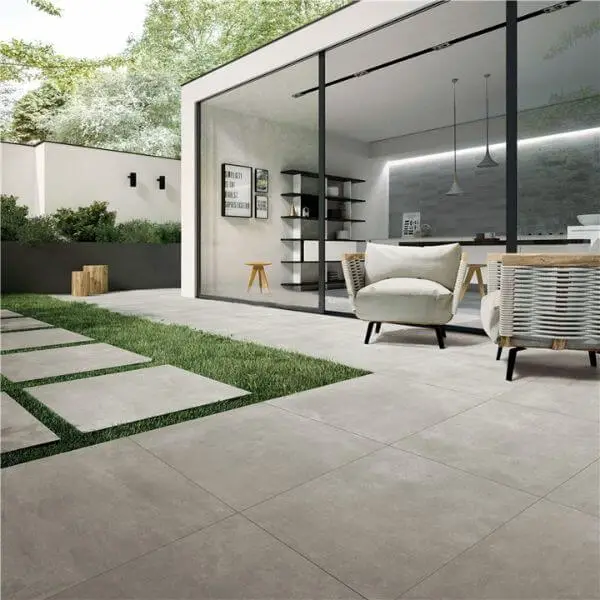
Ceramic and porcelain tiles, in particular, offer a blend of durability and aesthetic appeal. They’re also easy to maintain and can last for decades. For those worried about cold floors, installing underfloor heating can make your basement warm and inviting.
Don’t Miss: Best Flooring For Basement Playroom: 2024 Ideas
2. Carpet: Comfort and Warmth
Adding carpet to your basement can transform it into a cozy living area. Synthetic fibers that are moisture and mildew-resistant are ideal for below-ground environments.
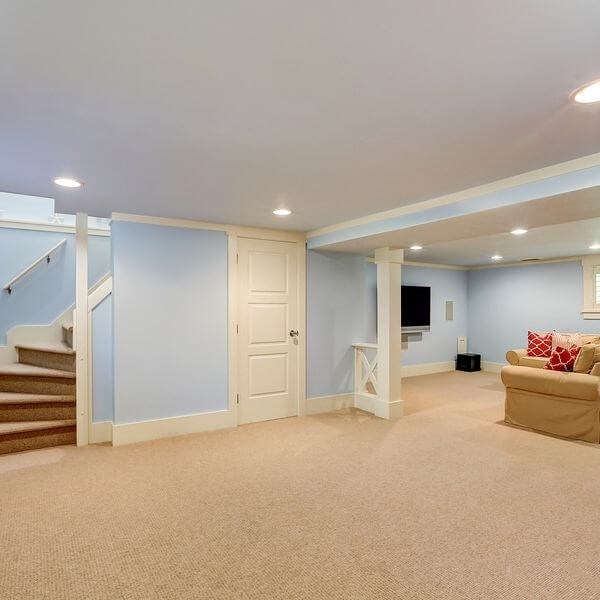
A subfloor beneath the carpet can further protect against moisture, making this option both comfortable and practical for family rooms or play areas.
Also Read:Signs And Causes Of Moisture Under Hardwood Floors
3. Laminate: Affordable Elegance
Laminate offers the look of hardwood without the high cost or susceptibility to moisture damage. It’s a practical choice for basements, thanks to modern advancements that include water-resistant properties.
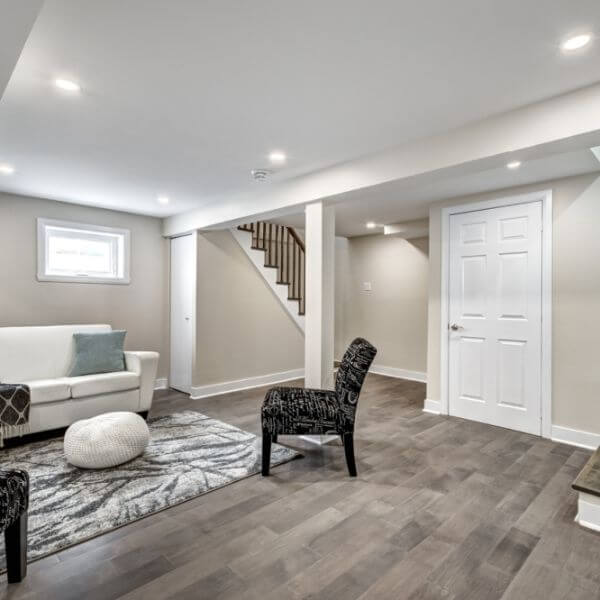
The ease of installation, with click-together planks that float over a moisture barrier, makes laminate an attractive option for DIY enthusiasts.
4. Vinyl: Versatile and Waterproof
Vinyl flooring, including luxury vinyl planks (LVP) and tiles (LVT), provides a waterproof and versatile solution for basements.
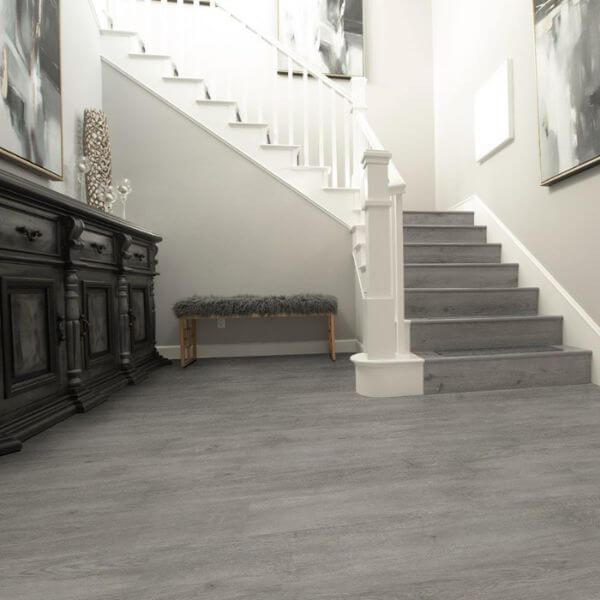
It can convincingly mimic hardwood, stone, and other materials, offering style flexibility along with durability. Its moisture resistance makes it an excellent choice for any basement renovation project.
5. Engineered Wood: The Warmth of Wood, Minus the Worry
Engineered wood flooring gives you the beauty of hardwood with better adaptability to basement conditions.
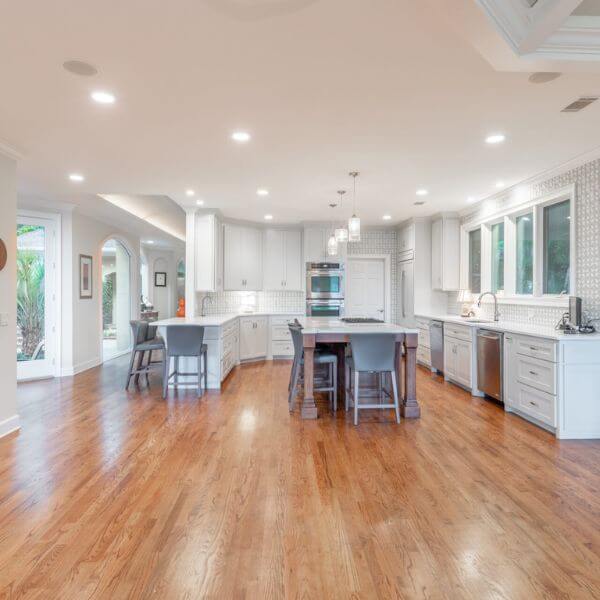
Its layered construction reduces the risk of warping due to moisture, making it a viable option for those who desire a natural wood look in their basement. Proper moisture management, however, remains crucial.
6. Vinyl Tile: Easy to Install and Budget-Friendly
Vinyl tile flooring is a fantastic choice for basements, offering an easy-to-install, budget-friendly solution. It’s known for its moisture resistance, making it perfect for damp basement environments.
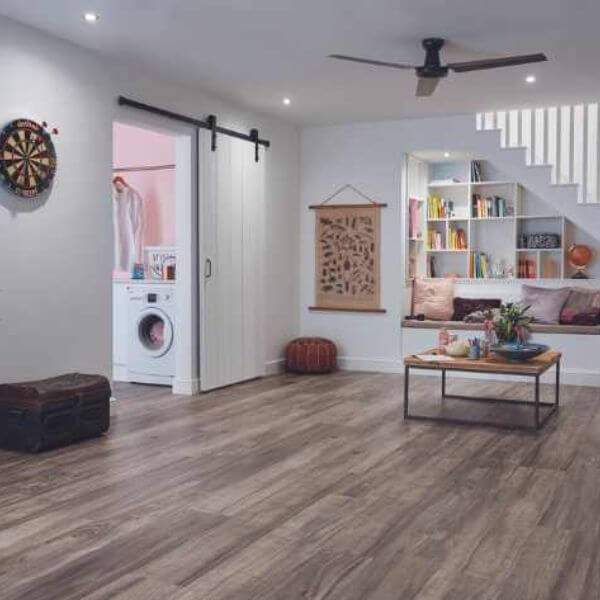
With a variety of designs available, vinyl tile can mimic more expensive flooring options, providing style without breaking the bank.
7. Concrete: Sleek and Modern
Concrete flooring is not just for industrial spaces anymore; it’s become a stylish choice for homeowners seeking a modern look in their basements.
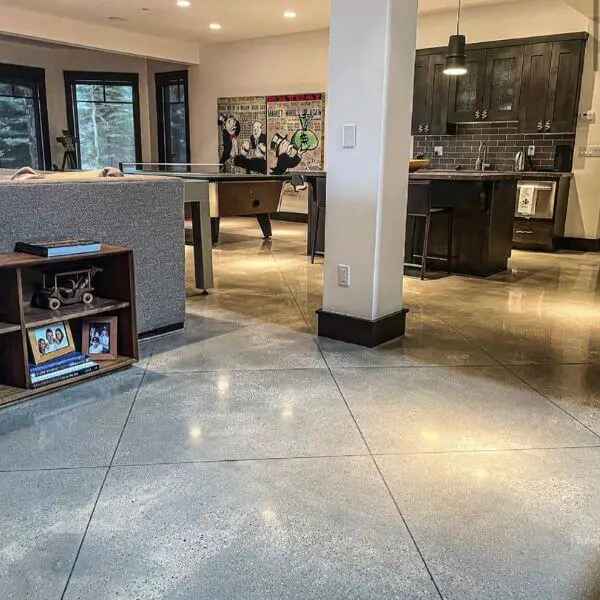
It’s incredibly durable and handles moisture like a champ. Concrete can be stained, polished, or painted to enhance its appearance, offering a sleek, contemporary vibe.
Our Most Popular Article: Best Non Slip Flooring For Dogs: 7 Picks
8. Luxury Vinyl Plank (LVP): High-End Look, Waterproof Nature
LVP is a step up in the vinyl flooring world, offering the luxurious look of hardwood floors with the added benefit of being completely waterproof.
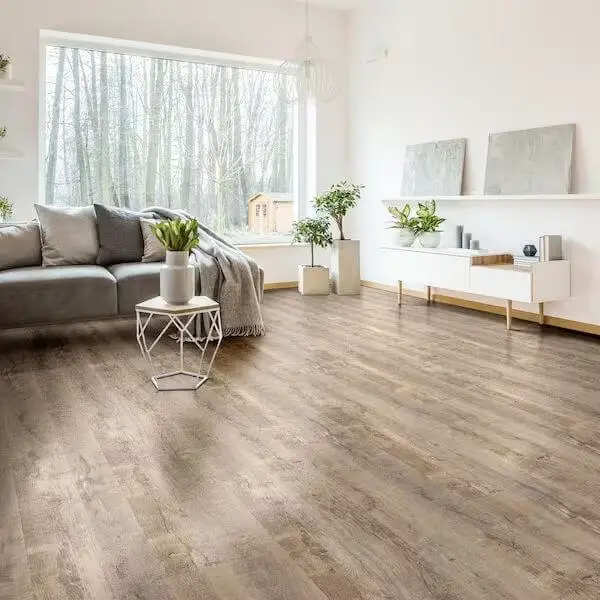
It’s an excellent choice for basements where you want the elegance of wood without the worry of moisture damage. LVP is also comfortable underfoot and comes in a wide range of styles.
Related: Best Wood Flooring For Kitchen 2024: Hardwood Floor Types
9. Rubber Flooring: Durable and Comfortable
Rubber flooring is a resilient and comfortable option for basements, especially in home gyms or play areas.
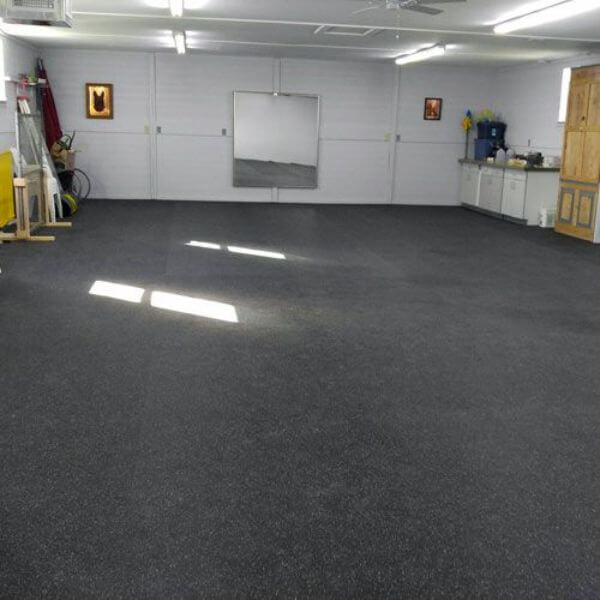
It’s water-resistant, easy to clean, and provides excellent insulation against cold concrete floors. Plus, its shock-absorbent nature makes it kind to your joints.
10. Cork: Warm and Eco-Friendly
Cork flooring brings warmth and a unique texture to basement spaces. It’s eco-friendly, naturally resistant to mold, mildew, and pests, and provides excellent insulation.
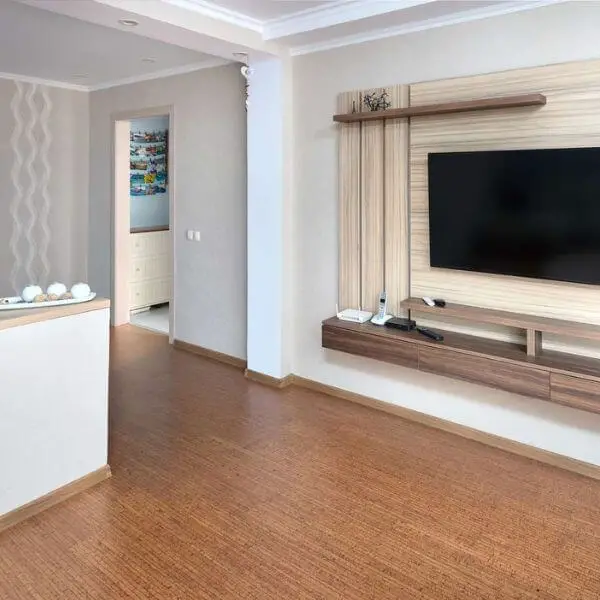
Cork is also known for its sound-dampening properties, making it a cozy choice for a quiet retreat or entertainment space.
11. Epoxy: Tough and Customizable
Epoxy flooring offers a tough, seamless surface that’s ideal for basements. It’s highly resistant to moisture, stains, and wear, making it suitable for high-traffic areas.
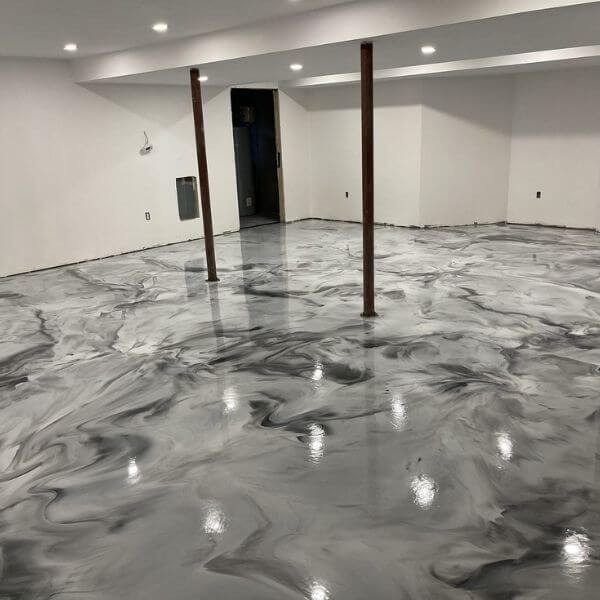
Epoxy can be customized with colors and patterns, allowing for a personalized touch that can range from simple to stunning.
12. Paint: Simple and Economical
Floor paint is a simple, economical way to refresh your basement’s look. While not as durable as other options, it can be a quick fix to brighten up a space or add a splash of color.
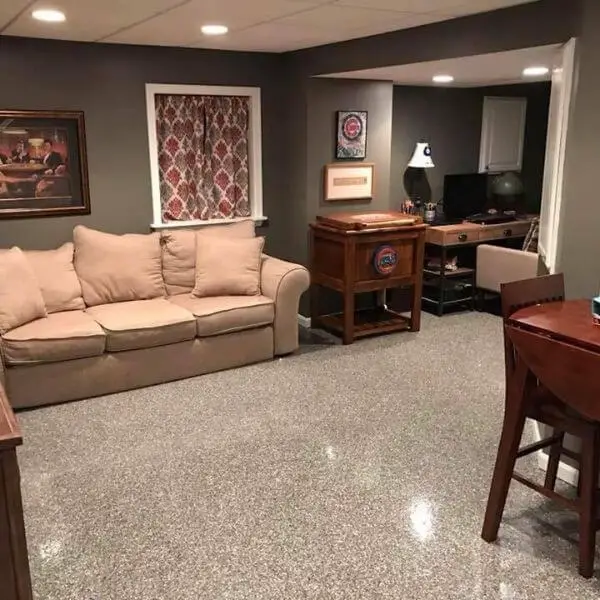
It’s best for basements with minimal moisture issues and can be easily touched up as needed.
13. Ceramic Tile for Basement Floors: Classic and Versatile
Ceramic tile is a classic choice for basements, offering versatility in design and color. It’s durable, easy to clean, and moisture-resistant, making it suitable for a variety of basement uses.
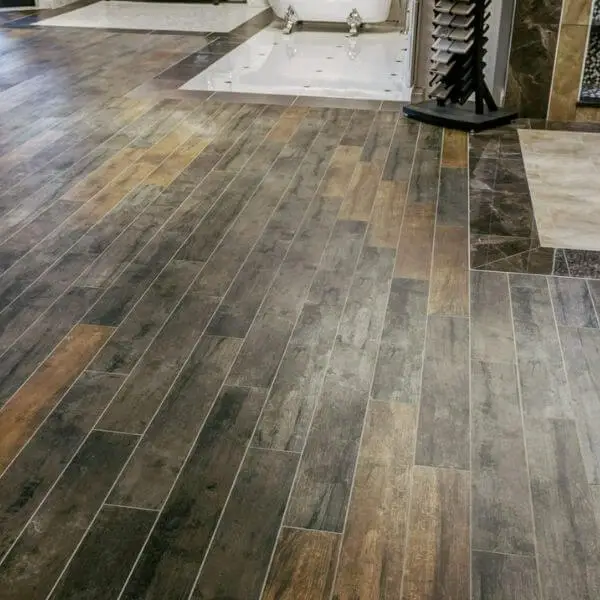
With the right underlayment, ceramic tile can also be a warm and inviting option.
14. Foam Flooring: Soft and Safe
Foam flooring is perfect for play areas or home gyms in the basement. It’s soft, providing a safe surface for children to play on or for workout routines.
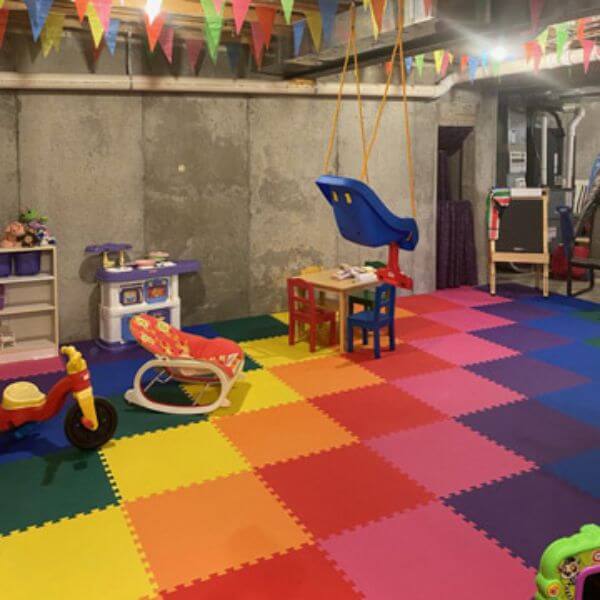
Foam tiles are water-resistant, easy to install, and come in various colors and styles to create a fun, cushioned area.
Helpful Article: Best Waterproof Flooring For Kitchen: Top Options
15. Luxury Vinyl: Stylish and Resilient
Luxury vinyl takes the benefits of traditional vinyl flooring and elevates them, offering styles that closely mimic natural materials like wood and stone.
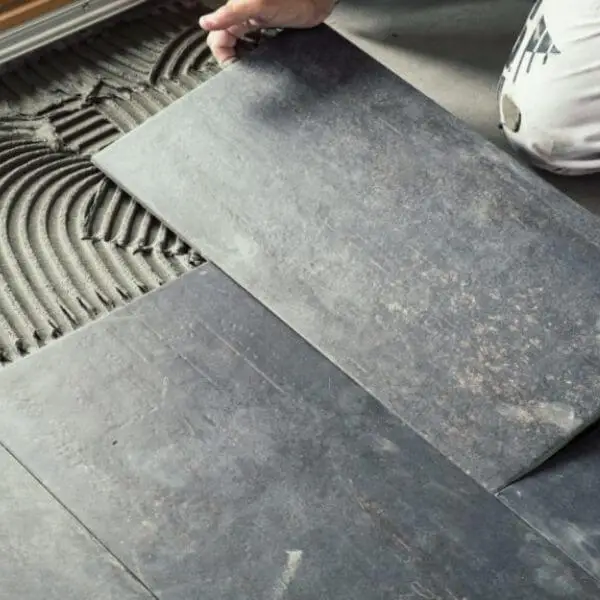
It’s waterproof, durable, and suitable for any basement area, combining style with practicality.
16. Porcelain Tile: Elegant and Water-Resistant
Porcelain tile offers an elegant, high-end look for basement floors. It’s more water-resistant than ceramic tile, making it an excellent choice for damp basements.
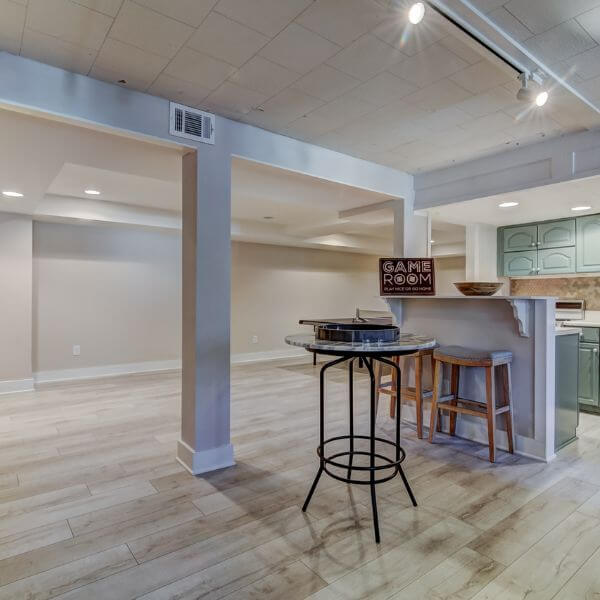
Porcelain is tough, durable, and available in a wide range of designs, from realistic wood and stone effects to modern geometric patterns.
17. Floating Floors: Flexible and Moisture-Resistant
Floating floors, such as laminate or LVP, are not attached to the subfloor, making them ideal for basements with moisture concerns.
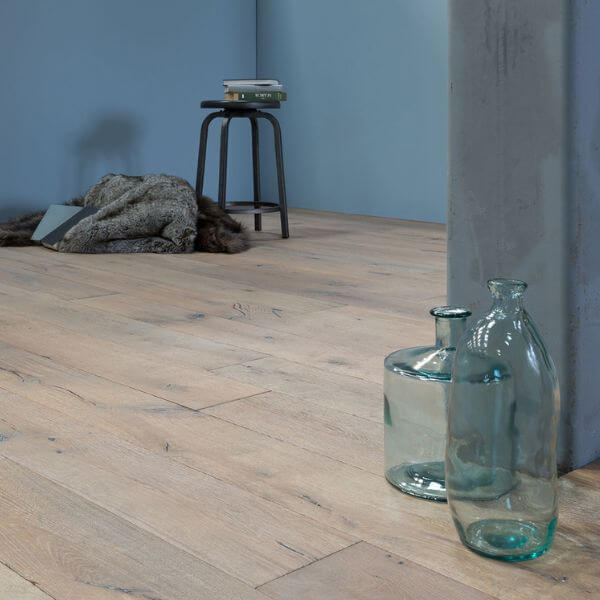
They can expand and contract with temperature changes without warping, and their installation is DIY-friendly. Floating floors offer a wide range of styles and are an excellent choice for a quick and effective basement update.
18. Plank Tile: Long and Luxurious
Plank tile gives you the long, luxurious look of hardwood planks with the durability and moisture resistance of tile.
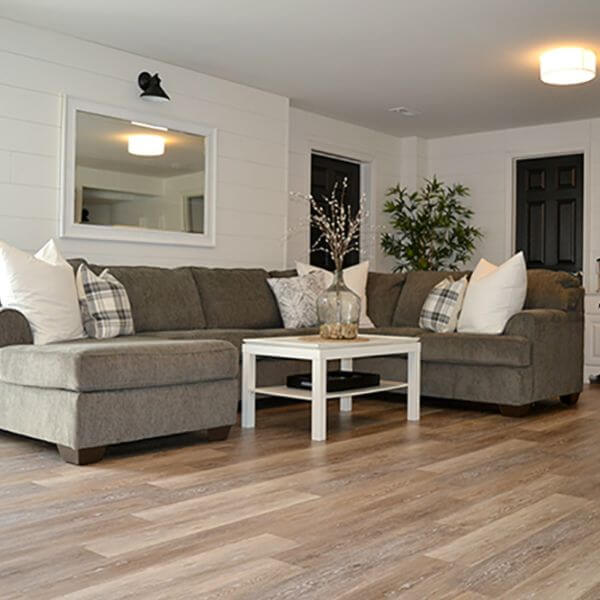
It’s perfect for creating a sophisticated base in your basement, combining the beauty of wood with the practicality needed for below-grade environments.
Final Thoughts
When it comes to picking the best flooring for concrete basement, it’s clear there are plenty of options to suit every need and style.
Whether you’re after durability, moisture resistance, or just a great look, materials like vinyl tile, LVP, and ceramic offer fantastic solutions.
Remember, the best choice for your basement will depend on how you plan to use the space and what your main concerns are, like moisture or wear and tear. So, take your time to consider all the options we’ve discussed to ensure you find the perfect flooring for your concrete basement.
John Henry is a passionate co-creator of FlooringFlow.com. a website dedicated to answer all of your flooring related questions. After taking the challenges of flooring DIYs while learning skills for years, John is now ready to share his knowledge related to floor remodeling and projects with you.

![70 Bedroom Color Schemes: [year] Home Bedroom Refresh 70 Bedroom Color Schemes: [year] Home Bedroom Refresh](https://flooringflow.com/wp-content/uploads/2024/07/25-Cool-4th-of-July-Decorations-for-Outdoor-Patio-to-Celebrate-in-Style-16.jpg)
